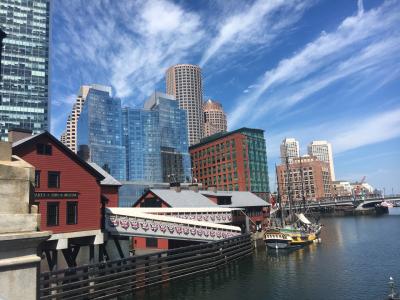Boston, Massachusetts Project Center - IQP

The Boston Project Center (BPC), established in 2013, partners students with government agencies, non-governmental organizations, businesses, and academic institutions in the Boston metropolitan area to collaborate on issues related to sustainability and climate change, the environment, and public health and safety. Through projects sponsored by the BPC, students benefit by obtaining real-world experience and developing skills of teamwork and research while working on a project with policy and social relevance. By addressing the technical and social (e.g. policy, financial, or educational) aspects of pressing challenges, students help develop sophisticated, practical and socially acceptable solutions to the issues or problems of concern.
Boston is a world-class city, featuring a wealth of cultural, educational, recreational, and tourist attractions. It is also an exciting place to do projects. In 2018 Boston was listed as one of the best cities for finding a job – a testament to its vibrant high-tech, bio-tech, and educational sectors. Students at the BPC will have the opportunity to explore the city - perhaps as a place to live and work after graduation - while completing their projects. It also offers all the amenities of a large urban city along with access to beautiful parks, beaches, and bike trails. It is a fun place to be! Students at the BPC complete their projects while living in Worcester and commuting to Boston, making it a low-cost option for an off-campus IQP experience.
Projects are developed in collaboration with sponsors that have identified challenges in the areas of:
- sustainability and climate change,
- environmental management,
- urban planning, and
- public health and safety.
Projects are designed to give students the experience of working on important challenges that require integration of technological, social, economic, and political factors. Past sponsors have included local and state government agencies and local community-based organizations: Boston Harbor Now, City of Boston, City of Chelsea, Boston Harbor National Park, GreenRoots, MA Department of Environmental Protection, and MA Executive Office of Energy and Environmental Affairs.
For example, in previous projects, Boston students have:
- Identified opportunities in Massachusetts for increasing use of renewable energy in clean-up of contaminated industrial sites
- Assessed risks and vulnerabilities associated with power loss in wastewater facilities and needs for back-up power systems
- Recommended strategies for improving community resilience to heat waves in the City of Chelsea
- Developed policy recommendations to reduce flood risks in Boston from sea level rise and severe storms
- Identified best practices for integrating public access to the Boston’s shoreline, economic development, and resilience to climate change
